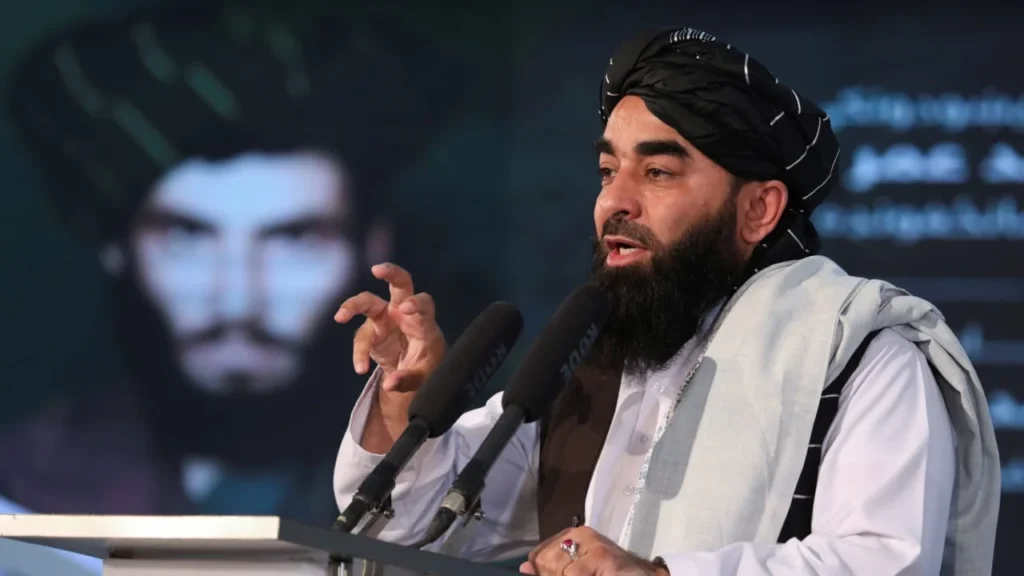This week, the spokesman of the Islamic Emirate of Afghanistan, Mawlawi Zabihullah Mujahid, reiterated that Afghanistan and Pakistan share common interests. In a conversation with Pakistani analyst Imtiaz Gul, released by the Center for Research and Security Studies (CRSS), Mujahid noted that the issue of Tehrik-i-Taliban Pakistan (TTP) is “not something new,” highlighting that the group has existed since 2003. He underscored that Pakistan has conducted multiple operations against them, describing it as “an internal matter” for Islamabad. Mujahid further cautioned against “accusations and the use of force,” stressing that such approaches do not serve the interests of either side.
A Delicate Moment in Bilateral Dialogue
While Afghanistan’s spokesman emphasized dialogue and restraint, the core issue, TTP sanctuaries inside Afghanistan, remains largely unaddressed. His statements reflect an attempt at maintaining communication channels but fall short of offering concrete commitments to Pakistan’s security concerns.
Expectations and the Emerging Stalemate
When the Taliban took control of Kabul on August 15, 2021, Pakistan expected improved bilateral ties and greater cooperation on security. Instead, the opposite unfolded. The security environment along Pakistan’s western frontier, particularly in Khyber Pakhtunkhwa, has worsened. The Afghan Taliban’s historical linkages with the TTP, coupled with their shared ideology, tribal ties, and mutual grievances, have complicated matters further.
Pakistan’s apprehensions are rooted in the belief that the TTP continues to enjoy safe havens in Afghanistan, using Afghan soil as a launchpad for attacks. Equally concerning is the free flow of weapons across the border. Sophisticated arms left behind by US and NATO forces in 2021 have since surfaced in TTP and Balochistan Liberation Army (BLA) operations against Pakistan.
The Taliban-TTP Nexus
The TTP and Afghan Taliban share more than just a geographical proximity. Their collaboration is underpinned by a shared interpretation of ideology and deep tribal connections across the border. Instances such as Afghan Taliban clerics calling Pakistan a “disbeliever state” echo TTP narratives, raising further doubts about Kabul’s ability, or willingness, to contain these groups.
Following their takeover, the Taliban released thousands of TTP prisoners, including senior leaders like Molvi Faqir Muhammad, who were previously jailed by the Afghan Republic. This decision gave the TTP a new lease of life, allowing its fighters unprecedented freedom of movement within Afghanistan. Combined with access to abandoned Western weaponry, this has fueled a sharp rise in militant violence inside Pakistan.
Pakistan’s Concerns on the Record
Pakistan has consistently raised its concerns through diplomatic channels. The presence of Afghan nationals within TTP ranks underscores the cross-border nature of the challenge. A recent example is Badruddin, alias Yousuf, the son of Badgis’s Afghan Deputy Governor, killed during a counter-terrorism operation in Dera Ismail Khan earlier this year.
Breaking news: Afghan Deputy Governor for Badgis's son Badruddin alias Yousuf, is one of the three militants killed in the operation by security forces in Kalachi, Dera Ismail Khan, along with TTP militants, today. Badruddin alias Yousaf son of Maolvi Ghulam Muhammad Ahmadi, the… pic.twitter.com/MJVlUggALj
— Mahaz (@MahazOfficial1) January 30, 2025
Similarly, intelligence-based operations conducted by Pakistan’s security forces in North Waziristan in July 2025 exposed the large-scale movement of TTP fighters from across the border.
On night 1/2 and 2/3 July 2025, movement of a large group of khwarij, belonging to Indian Proxy Fitna al Khwarij, who were trying to infiltrate through Pakistan-Afghanistan border, was detected by the security forces in general area Hassan Khel, North Waziristan District.
— DG ISPR (@OfficialDGISPR) July 4, 2025
Own… pic.twitter.com/Rhq9aC1Tjk
The Afghan Interim Government, therefore, bears responsibility for ensuring that Afghan soil is not used for orchestrating attacks against Pakistan. The Doha Agreement’s pledge of “no use of Afghan soil against others” remains the baseline for building trust between the two neighbors.
Pathways to Peace and Stability
Pakistan’s national security and economic stability are directly tied to peace in Afghanistan. With a shared border stretching thousands of kilometers, the security challenges cannot be addressed in isolation. Terrorist sanctuaries, cross-border infiltration, and external intelligence networks exploiting Afghan territory pose direct threats to Pakistan’s sovereignty and stability.
Yet, the pathway forward lies not in blame, but in meaningful cooperation. Pakistan has consistently rejected non-state actors as legitimate stakeholders in war or peace, reaffirming that only states hold this authority. For sustainable regional peace, Afghan authorities must take decisive steps to prevent local commanders and nationals from offering sanctuary, manpower, or ideological support to groups targeting Pakistan.
A Call for Reciprocity
Pakistan has always advocated balanced and cooperative ties with all its neighbors. It remains committed to trilateral platforms such as the Afghanistan-Pakistan-China Dialogue, which provide avenues for peace, trade, and connectivity. However, these opportunities can only be realized if commitments are honored and reciprocal trust is demonstrated.
Peace in Afghanistan is a strategic priority for Pakistan. Equally, stability in Pakistan is in Afghanistan’s interest. Recognizing this interdependence is the first step towards moving from mistrust to cooperation, and from shared challenges to shared solutions.

